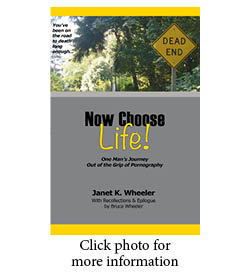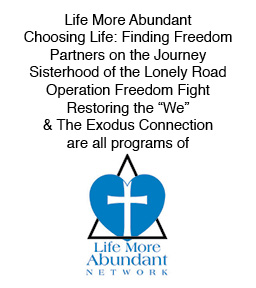Addiction is a way to keep ourselves feeling emotionally safe. We get hooked because, somehow, our chosen substance or behavior makes us feel better. It may calm us down, distract us from the uncomfortable, or make us feel more normal and acceptable. Whatever its role, the addictive life, by its very nature, is egocentric. It’s all about us and whether we’re feeling OK.
If we’re addicted to something it’s not because we’re bad or weak, but because we learned early on that we couldn’t count on others to meet our authentic and reasonable needs. We had to rely on ourselves. We scrambled, all alone, to find a way to get what we needed and a way to cope with the scary and difficult things in this life. Addiction was the tool that helped us in that pursuit.
Unfortunately, the more the addiction’s grip tightened in our lives the more inwardly focused we became. Many of us got to the point where we could no longer be completely present with those around us. We were unable to connect with them and their needs because we had so many of our own.
Nobody understood. We weren’t trying to be selfish or narcissistic. We were just trying to survive.
A huge indicator that someone is getting healed from their addiction is that they stop focusing exclusively on their own hurts and needs and begin to look beyond themselves.
They begin to notice that there are other people in the room . . .and that they seem to have hurts and needs as well. It’s a very significant step forward, but it doesn’t automatically make everything right. Recovering addicts often continue to struggle for some time with what to do with this new information. They want to reach out, but they don’t know how. Everything they do or say seems to make it worse.
The problem lies in all those years of using the addiction to avoid feeling our own hurts. We can’t truly empathize with someone unless we can feel their pain with them. If we haven’t allowed ourselves to feel our true emotions, how can we begin to know what the other person is experiencing? Our ability to connect with others is directly related to our ability to connect with something in ourselves that understands what they’re feeling.
The more we make the difficult choice not to run to our addiction, but to actually sit with the feelings we so desperately want to avoid, the more we will develop a database of emotions that we can relate to, both in ourselves and others.
As we become more able to connect with others in their struggles, because we truly understand what they are feeling, our relationships begin to deepen and our recovery takes a giant leap forward. We are no longer on the outside looking in. As our new points of connection grow, we will begin to feel, maybe for the first time in our lives, that we actually fit in.
“Rejoice with those who rejoice; mourn with those who mourn.” —Romans 12:15


Leave A Response